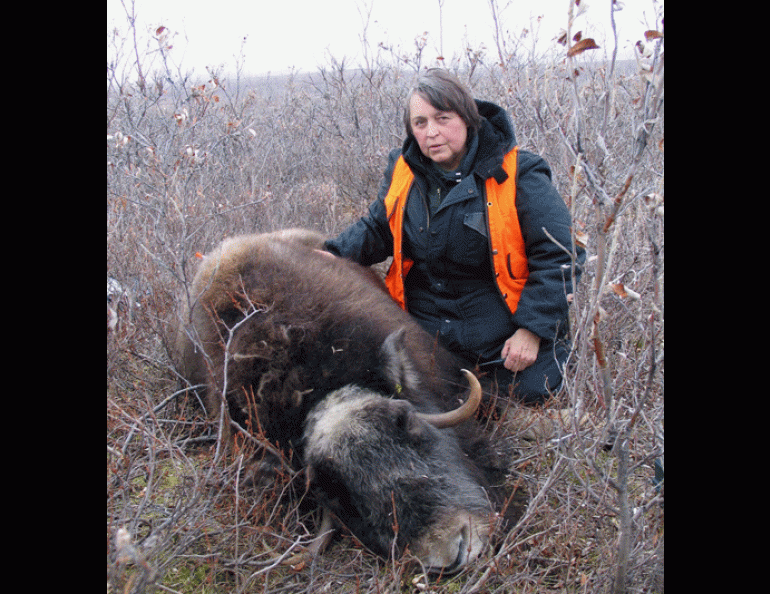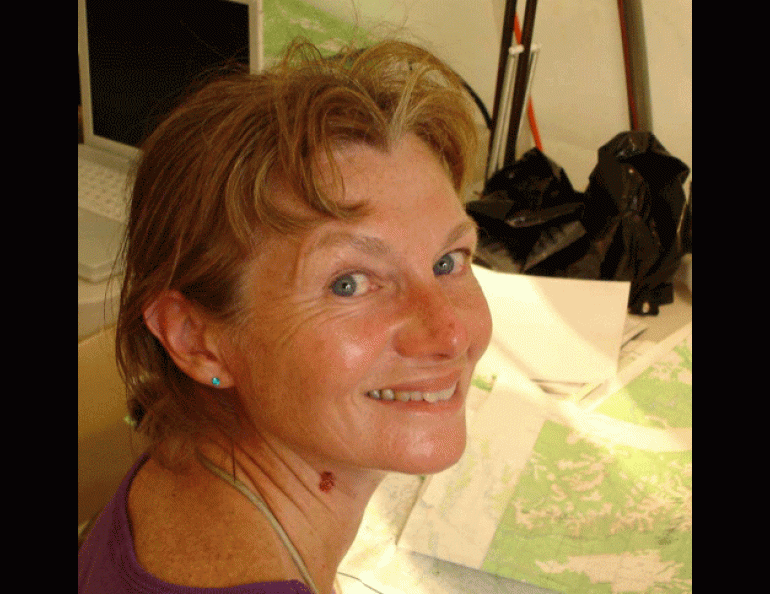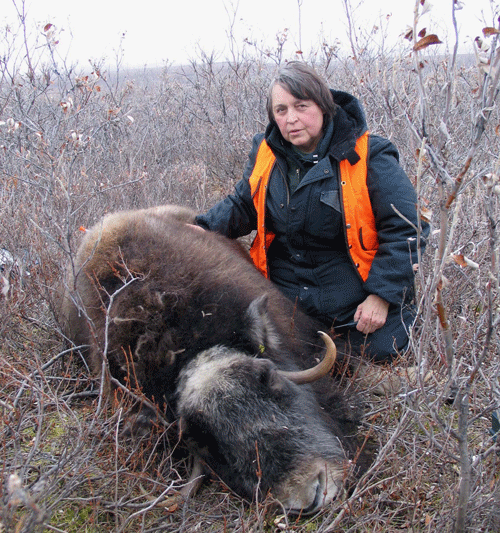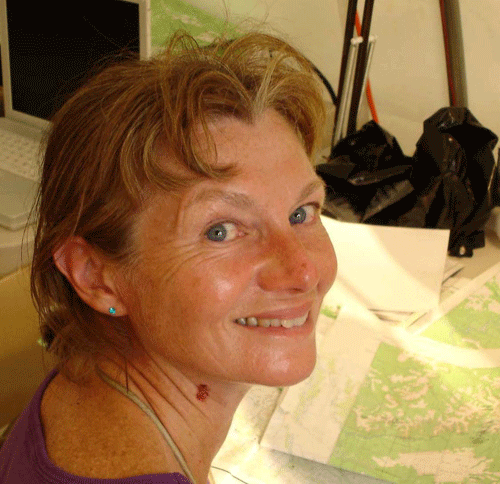

Women in science on being women in science (Part 3)
To mark Women’s History Month, I sent a questionnaire to a few Alaska women scientists who have excelled at their craft for a few decades. Last week I featured Pat Holloway and Tina Neal.
Following are the edited responses of two more Alaska women scientists — Marti Miller, chief geologist at the U.S. Geological Survey’s office in Anchorage, and Patricia Reynolds, a wildlife ecologist for the Arctic National Wildlife Refuge. Miller began work with the USGS in 1981. In the past 30 years, Miller discovered Alaska’s oldest rocks near Iditarod (more than 2 billion years old), and shot and killed a black bear that stalked her during fieldwork. Reynolds has studied the large creatures of Alaska’s North Slope since the late 1970s, including sheep, northern grizzly bears and musk oxen, some of which she has immobilized with tranquilizer darts.
Were there more hurdles for you to clear in science because you were a woman?
MM: Geology is traditionally a male-dominated field, but I came into the science during a time when the USGS Branch of Alaskan Geology happened to be hiring more women than men. In the early 1980s, of the seven new field geologists hired in Anchorage, five were women. The chief was not necessarily looking to hire women; he was just going for the most qualified applicants. However, he did get ribbed about it! All five of us are still working for the USGS and collectively our geologic expertise covers the entire state.
PR: When I was first came to Alaska in the early 1970s and applied for a job as a wildlife biologist, the interviewer told me, “We don't hire women wildlife biologists because wives of our biologists do not like their husbands being in the field with other women.” Later, I was told that I could not be promoted to be supervisor, because “men don’t like being supervised by women." On the other hand, when colleagues implied that the reason I was hired for a particular job was because I was a woman, I was insulted.
Has public perception changed about women scientists?
PR: Public perception has changed. In the 1960s, when I worked as a seasonal ranger, I encountered comments like “Where is the real ranger?" One summer, I was responsible for taking small groups on fairly arduous daylong hikes or overnight trips. When I arrived at the trailhead to meet a group, an individual insisted that he did not want to go on a trip led by a woman. When no male ranger appeared, he decided to come along. By the end of the day, after he had fallen well behind the rest of us, he apologized and said he had changed his attitude about women.
In the 1970s, when I needed to travel on seismic trains or visit oil field camps where, at that time, there were no women, it was a huge issue. Today, no one notices women physicians, women wildlife biologists or women drivers of front-end loaders. My daughters grew up in the 1980s and 1990s and know that they can do or be anything they want to be. And they are proving that this is possible.
MM: Yes, I think public perception has changed. I have not once experienced someone questioning my science because of my gender. But here’s a little tale that reveals that things have changed: I took geology field camp from Clyde Wahrhaftig, a respected professor at the University of California Berkeley who also worked extensively in Alaska. At the end of field camp, Clyde told me, “You know I never used to allow women to take my field camp — thought it would be too disruptive. My mistake, women are the best field mappers.”
Have there been hurdles you have faced that a man would not have faced?
MM: The one challenge I’ve seen unfold in case after case is the balancing act of work and motherhood. Mothers do try to do it all and succeed, usually through sleep deprivation!
PR: Men and women can face different roles and responsibilities (some self-induced) with respect to raising a family and maintaining a professional career.
What would you tell a girl who is contemplating a career in science?
PR: I would tell her that I have been extraordinarily fortunate in doing work that I love for so many years. I have adventures, see new things, observe changes that have occurred over time. I am constantly learning new techniques and thinking up new ideas, based on my own and others’ work. I would encourage her to read extensively, to take writing and computer classes, to take math and sciences courses, and to pursue her interests in science (or any other field) because she has so many opportunities and choices. I would say these same things to a boy. A career in science may be challenging, but it will never be boring.
MM: No holds barred — women belong in science. Everyone brings a unique perspective to the table. Men may be from Mars and women may be from Venus, but working side-by-side, bringing different perspectives together, will result in better science.







